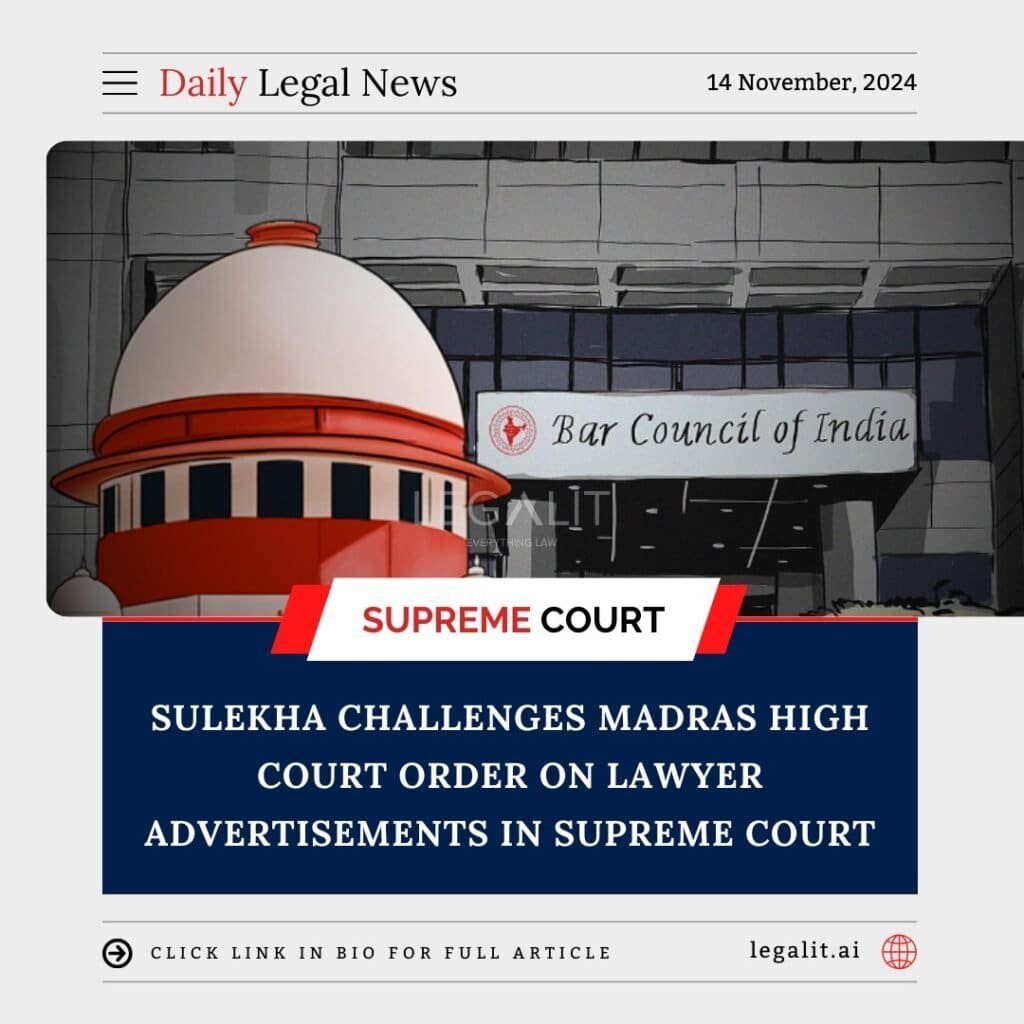
Sulekha, a prominent online services platform, has moved the Supreme Court challenging a recent order by the Madras High Court, which directed the platform to take down advertisements related to lawyers offering legal services. This move has raised significant questions about the regulation of lawyer advertisements and the scope of legal services marketing in India.
Background:
The Madras High Court’s order came after it found that certain lawyer advertisements on Sulekha’s platform violated the Bar Council of India (BCI) guidelines, which prohibit advertising by lawyers to maintain the dignity and integrity of the legal profession. The court observed that such ads could mislead the public and may be perceived as an attempt to commercialize legal services, which is not in line with professional ethics. In response, Sulekha has approached the Supreme Court, seeking to reverse the decision and contest the legality of such restrictions on advertising.
Court’s Rationale:
The Madras High Court’s decision was based on the premise that legal advertisements should adhere to the ethical standards set by the Bar Council, which aims to preserve the reputation of the legal profession. The court highlighted concerns over the potential for advertisements to misrepresent legal services or offer unsolicited legal assistance, which could lead to exploitation of vulnerable individuals.
Existing Measures:
Currently, the Bar Council of India (BCI) regulates lawyer advertising through its rules, which discourage direct advertising by lawyers. While this is intended to prevent undue commercialization of legal services, there has been an ongoing debate about whether these rules need updating to address the growing digital marketplace where online platforms like Sulekha allow such advertisements.
Conclusion:
Sulekha’s appeal to the Supreme Court will likely set an important precedent for the regulation of lawyer advertisements in the digital age. The outcome could determine how lawyer advertising is governed in the future, balancing the need for ethical standards with the reality of online marketing. This case raises broader questions about the evolving landscape of professional ethics in the digital space and the extent to which traditional rules should adapt to modern platforms.